Bryce Dershem beat the odds
Eastern Regional High School graduate Bryce Dershem and his father, Michael Dershem, celebrate at Bryce’s graduation ceremony.
In recent months, Bryce Dershem was concerned that he may not even graduate high school. This past week, he not only graduated but did so as valedictorian.
By becoming valedictorian, Dershem, now a graduate of Eastern Regional High School in Voorhees, New Jersey, earned the opportunity to make a speech to his class and their guests at his graduation ceremony. That speech has since gained him national attention, in large part due to the fact that his microphone was cut off about a minute after he began giving remarks, regarding his experiences as a queer student who struggled with mental health, that were not approved by school administrators. While the events of the ceremony were surprising to many, so too is the story of how Dershem arrived at the valedictorian’s podium in the first place.
In a class of over 500 students, the chance that any one student will rank at the very top of their class and earn the honor of being valedictorian is around 0.2%. That number assumes a level playing field for all students, so if some face especially challenging circumstances, their odds of earning the top spot could be even slimmer. For Dershem, that may have been the case due to challenges he faced during this past school year. As he was taking part in a treatment program for anorexia, Dershem said he was only able to spend about an hour each day completing schoolwork, including the time-consuming process of applying to colleges. He did not attend live virtual classes, instead completing assigned work asynchronously. In the face of these circumstances, Dershem worried about whether he would be able to complete all of the necessary classwork to earn his diploma, let alone earn the top rank in his graduating class.
“I really didn’t think I was going to be valedictorian. I didn’t even know that that was an option for me,” Dershem said.
When asked what his grades had been in order to become valedictorian, Dershem was unsure.
“I don’t know how we calculate GPA… I’ve never looked at my grades in the past, like, three years,” he said. While this may be unusual for a top student, especially in the hypercompetitive academic environments of today, Dershem had other focuses.
“My freshman year… I was obsessed with grades and everything, and as I moved into sophomore year, junior and senior year… I stopped looking at my grades altogether because I love learning, I love going to school and seeing my teachers every day, and I thought all of the grades took away from that… There were a lot of times too, I didn’t have the energy to care about my grades,” Dershem explained.
After overcoming obstacles and the odds to become the valedictorian of his class, Dershem wanted to share his story with classmates in his commencement speech. He said the writing process took some work, even getting off to a rocky start.
“I started working on the speech, and I will admit, the first few drafts were trash, absolutely trash. But I talked with a lot of friends, teachers, and family… it was such a personal speech to me that it was hard to write, so I wanted to get as much help as I possibly could,” Dershem said.
As that writing process continued, Dershem became happier with the presentation of his personal story and message that he’d crafted, saying, “[I] worked so hard on the speech to make it just so inclusive and just this positive message of just believing in yourself and knowing that you’re enough, embracing your identity.”
Dershem was surprised to find that, as he tells it, administrators did not feel the same way about his speech.
He said, “The administration, as I was writing it, they kept on telling me that my speech was supposed to be about scholarship and it didn’t relate to the class. And I didn’t really understand that because, you know, scholarship for me is not just… inside the classroom, like outside the classroom, everything that you’ve become over these past four years as students… in the learning process, you’re learning mostly about yourself and who you are.”
Dershem said that after submitting a final draft of his speech on June 14th, he received an email from his principal saying that if the speech was not changed by June 16th, the day before the graduation ceremony on June 17th, he would not be allowed to speak at all. On June 15th, Dershem said he went to speak with principal Dr. Robert Tull in his office.
When Dershem went to the office hoping to discuss possible changes to make his speech more acceptable to administrators, he said “The principal and the administrators started saying things like ‘the graduation ceremony wasn’t my therapy session’ and that ‘I have all these issues as a person.’”
Dershem said that he was then told that administrators did not have more time to discuss the speech and that he should go work with the head of the English department to revise the speech. Dershem said the English department head was kind and helped to make edits in service of making the speech more inclusive and relatable to all students.
“She was like, ‘submit the speech, it should all be good,’ and I was like ‘awesome,’” Dershem said. Instead, when he checked on the speech later that day, Dershem said he found that various edits had been made, including the removal of “everything related to [him] being queer and all of the parts about [his] personal journey with mental health.”
In a statement made to Eastside, Eastern Camden County Regional School District superintendent Robert Cloutier said, “No student speaker was asked to remove their personal identity from any speech before or during graduation or stopped from sharing their personal identity during graduation.” Cloutier also said he “asked our district solicitor to contact an appropriate government agency to conduct an independent review” and highlighted recent district initiatives in support of social-emotional wellness, diversity, and inclusion.
When graduation day came and it was time for the speech to be made, Dershem said, “As soon as I [said] the line ‘after I came out as queer,’ my mic cut… The principal comes up to the stage, and he takes the speech that I had written, and he crumples it in his hand. You know, the speech that I had worked months on, this speech that, you know, was so descriptive of all my personal trials and tribulations, a speech that was so emotionally vulnerable for me… [he] crumples it in front of my class of 500 and audience of 2000 in the stadium… at that point it just broke my heart.”
Dershem said those events infused him with the passion to continue speaking, leading him to attempt to finish the speech from memory after his paper copy was taken away. He received a standing ovation after the speech, which he said “meant the world” to him.
Dershem said that he believed one woman’s response to his speech affirmed that he had done the right thing.
“After graduation… this woman on the Board of Trustees came up to me and she told me that her son hadn’t made it through the pandemic due to mental health struggles and that she was so proud that I had given such a speech and that she was really thankful that I had given the speech… she cried into my arms and I cried into her arms… I thought this is the one person who I made feel less alone, and in that moment I knew for certain that I had done the right thing.”
Dershem never expected to be giving a valedictorian’s speech at his graduation, if he would be there at all. He went into school as a regular kid who faced mental health struggles, loved poetry, was enamored with reading and the Percy Jackson series, and was a big fan of Taylor Swift. (After much deliberation, Dershem said his favorite of the pop star’s songs would have to be “Shake It Off”).
While he didn’t expect to gain such a platform from his speech, Dershem is using that platform in national media to highlight issues he finds important. Mentioning high rates of suicides and eating disorders among queer people, Dershem said more specific resources are needed for queer people dealing with mental health. As he moves on to study art history and French literature at Tufts University and to pursue his dreams of becoming a poet, museum curator, or professor, Dershem wants to keep pushing for inclusion and equality.
“All I really ever wanted to do was make people feel less alone… going forward, that is continuously going to be everything that I hope to do… just let every single person know that they are not alone and that their identity is beautiful.”
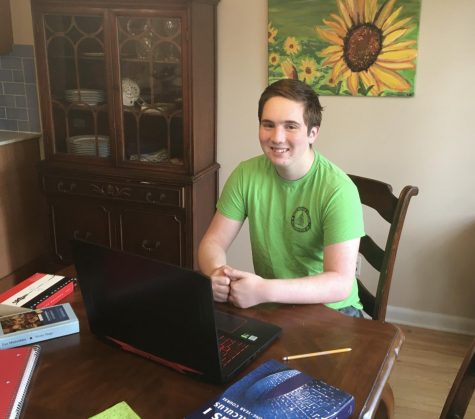
Elle Rood is a sophomore and Eastside Global Commentary Editor. Outside the (virtual) newsroom he can be found staffing national political campaigns, collecting...

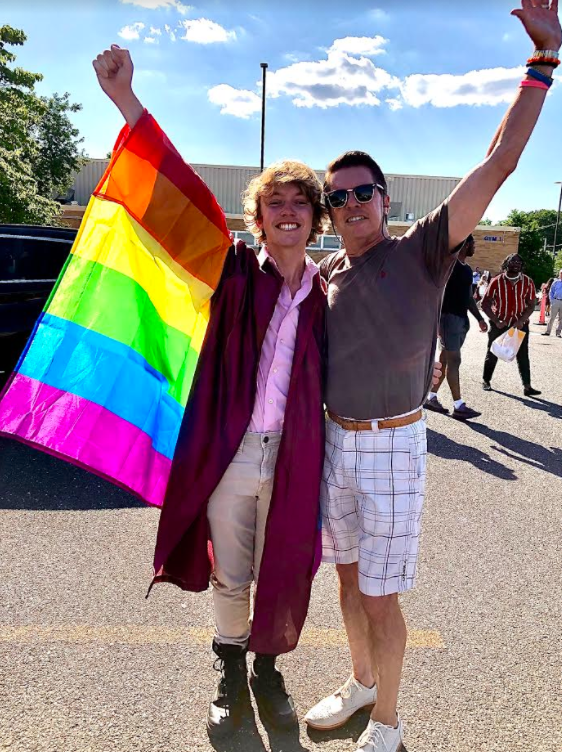
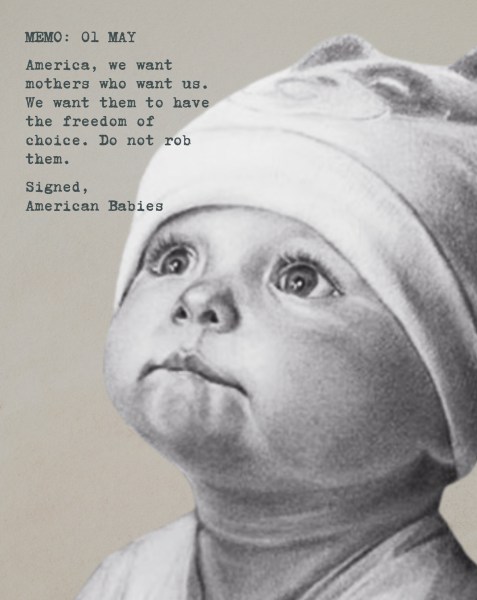





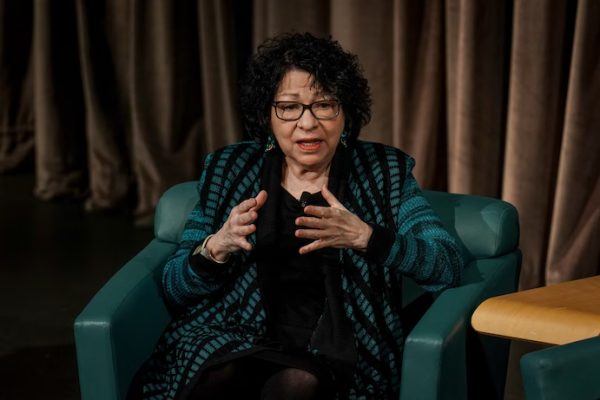

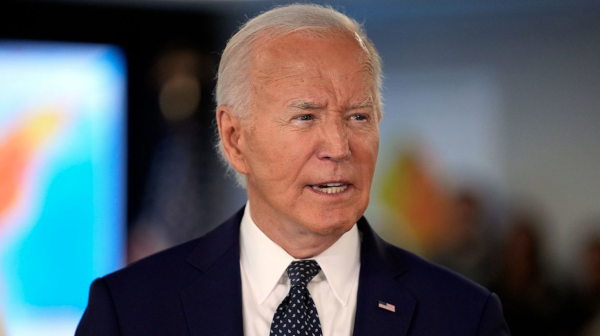
Gary Loudenslager • Jul 27, 2021 at 2:27 pm
I am a retired Director of Guidance, High School Principal, and Superintendent for the Deptford Township School District. I worked there for 44 years. I also worked as a driving instructor for Echelon Driving School from 1995-1999. I taught scores of Eastern High School Students to drive and am somewhat familiar with the culture and climate of Eastern School District. Climate and culture is generational and rarely changes. I am also familiar with the tedious task of correctly naming the number one student in the senior class who becomes the Valedictorian and also reading and approving Valedictorian speeches. Neither are easy tasks. I have counseled students with mental health issues, eating disorders, and sexual orientation situations.
I have also known too many students who have , sadly, taken their lives. Tyler Clementi’s suicide in 2010 brought anti-bullying mandates in New Jersey and Nationally .Yet, I was saddened to see the attempted censorship at the recent Eastern Commencement. I applaud Bryce Dershem for his courage and, also, the students and faculty who stood with him. Valedictorian speeches should send a message as well as bid farewell to one’s fellow classmates. Bryce did all of that and more.Thank you, Bryce ,and best of luck in all your future endeavors.
Collette Plaquet • Jun 28, 2021 at 11:47 am
Thank you Aiden for such a clear picture of this young man. It is very disturbing to me, in these times, that the principle and school administrators were so out of touch with reality and the needs of their students, as well as the families, that they would try to push it down. I wish Bryce all the best life will offer him as he stands firm in strength which comes from overcoming..
D. Agosto • Jun 28, 2021 at 7:07 am
Thank you, Bryce, for your loving, inclusive speech, and for your fortitude in persisting against predujice and misunderstanding. Your kind words and kind heart have inspired so many people. Thank you.
Diane Foley • Jun 28, 2021 at 2:10 am
I witnessed this young man’s speech via the school sponsored TV broadcast. My granddaughter was also graduating and happened to be a close friend of young Mr. Dershem’s. As he began to relate his personal truth as a sharing exercise designed to give his classmates, especially those who may have been struggling with their own problems, I watched the principal, after silencing the microphone, come onto the podium and remove Bryce’s mike as he crumpled the speech’s pages. I was shocked, angered and incredulous. This young man was not inciting violence, hatred or using profanity. He was offering and promoting compassion, acceptance and the shared experience of mental health issues. I wholeheartedly applaud Bryce Dershem for his bravery and message of understanding and self-love to his peers. Shame on his principal and those who would silence him.
Jennifer Larsen • Jun 27, 2021 at 3:48 am
While I can appreciate the personal journey/afflictions, they are just that-personal. He didnt participate with fellow students w virtual classes and by admission wasnt sure he completed requirements. What are the requirements and did he merit Valedictorian or did he get it bc of pressure? He doesnt like nor follow basic rules and not for nothing but I dont think his “political ploy” BLM marxists and LGBTQRST activists propaganda was going to be a surprise to anyone and he couldve spoken of achievements, fellow students, memories of HS his college endeavor- all of which are inclusive to all. He chose to violate rules and feed a stereotype. That doesn’t scream 1st in class to me.